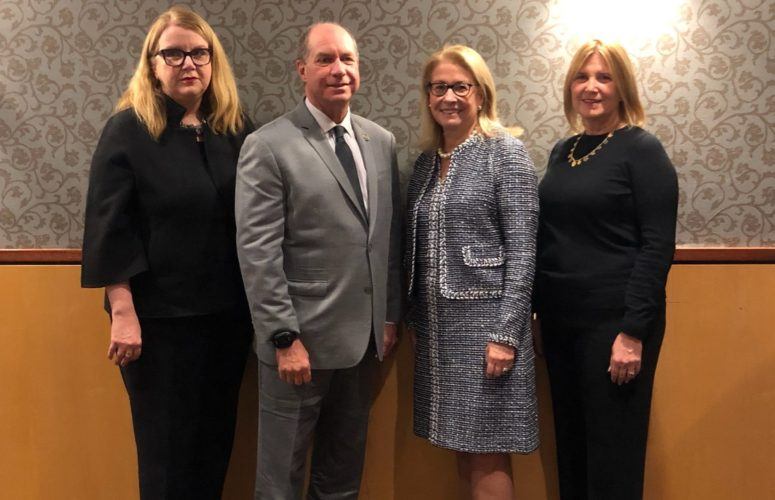
ORO Program Aims to Significantly Reduce Opioid Prescribing
By Jim Pytell, Assistant Editor On Nov 4, 2019PRINCETON, NJ – Today marked the start of the Opioid Reduction Options (ORO) program, a new statewide initiative aimed at reducing the number of opioids prescribed to treat chronic pain in hospital emergency departments. The program will provide training and education to health systems on alternatives to opioids when it comes to pain relief options, and builds on efforts by the Office of the Attorney General to regulate opioid prescribing, educate prescribers about the risks associated with opioids, and target enforcement efforts against reckless and criminal over-prescribers.
“Today, kicking off this program, New Jersey is setting the gold standard for alternatives in opiods in our emergency departments, statewide and for the nation,” said Cathleen Bennett, president and CEO of the New Jersey Hospital Association (NJHA), at an educational seminar for clinicians held at the NJHA Conference and Event Center in Princeton, which marked the kickoff of the ORO program.
There were an estimated 3,163 drug overdose deaths in New Jersey last year, which is the highest number of deaths on record for a single calendar year ever.
The ORO program is supported by $1 million in funding from the NJ Department of Health and NJ Department of Human Services, both of which have partnered with the NJHA, St. Joseph’s Health and its clinical partners to aid in providing training and education to participating hospital emergency departments.
“New Jersey has made some progress in reducing opioid prescribing. From 2012 to 2018, we have actually seen an approximately 21% decrease in opioid prescribing among providers,” said Department of Health Acting Commissioner Judy Persichilli. “[However] drug related hospital visits have increased 200% since 2008, and 66% of those visits involved individuals using heroin and prescription drugs.
“Hospitals are critical partners in addressing substance use disorder,” added Persichilli. “By investing $1 million to advance the ORO program, we are ensuring more providers are training to address an addiction that may start with a visit to the emergency department.”
St. Joseph’s Health in Paterson has been recognized nationally for reducing its opioid prescribing to just 2%.
“St. Joseph’s Health launched The Alternatives to Opioids program (ALTO) in 2016 to offer a real solution to a rapidly growing opioid epidemic,” said Mark Rosenberg, DO, chairman of emergency medicine and chief innovation officer, St. Joseph’s Health. “Since then, we have witnessed tremendous success using the ALTO protocols – reducing opioid prescriptions by more than 82% in the St. Joseph’s Emergency Department. We are stopping addiction before it starts.”
The ORO program will look to mirror the success of St. Joseph’s Health’s ALTO.
“Far too many New Jerseyans have been impacted by opioid abuse,” said Bennett. “As healthcare providers, we are committed to being part of the solution by adopting and sharing the very best strategies to treat patients’ pain without leaving them vulnerable to opioid addiction.”
To access more business news, visit NJB News Now.
Related Articles:





